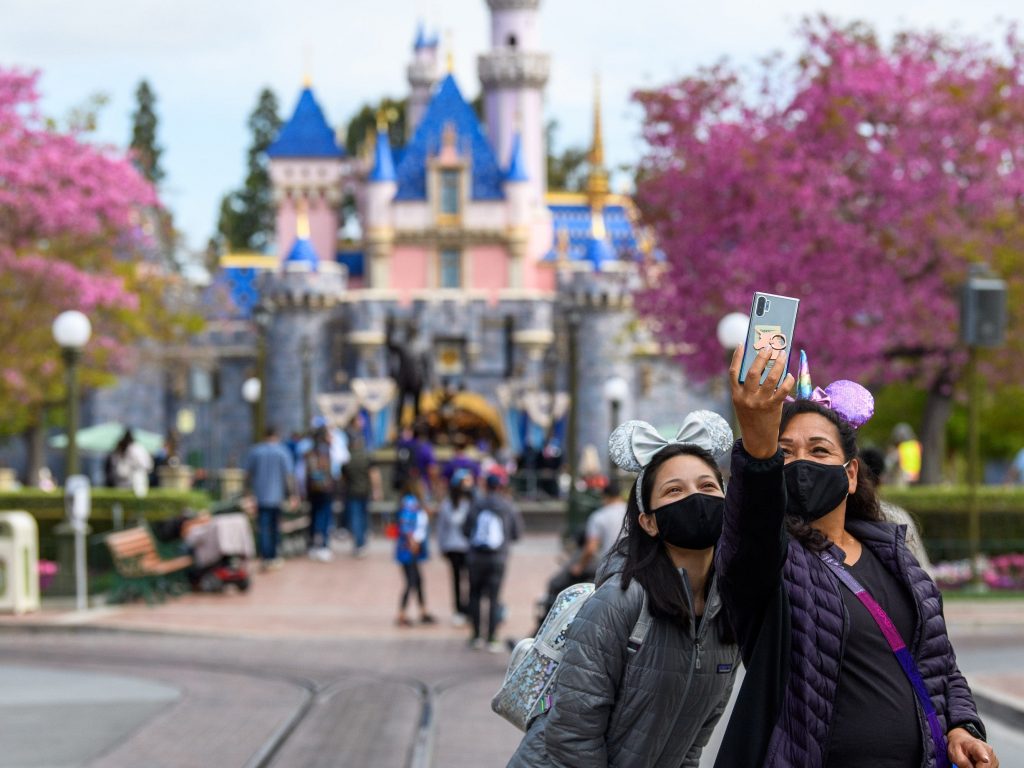
- A lawyer for Disneyland workers says he plans to appeal a judge's decision to dismiss a 'fair wage' lawsuit against Disney.
- Anaheim's Measure L requires hospitality companies like Disneyland to gradually bump up minimum wage for hourly employees.
- The city of Anaheim said it does not provide rebates or subsidies to Disney, saying it's just a "public-private partnership" with the company.
Disney might not have to boost pay for hourly employees at Disneyland after a judge dismissed a lawsuit against the company over Anaheim, California's, wage requirements, but a lawyer for the workers is not yet ready to give up the fight.
A lawyer in the class action lawsuit against Disney told Insider on Friday he plans to appeal the case's dismissal.
"We think the court's ruling is contrary to what the voters approved in 2018 and that where Disney takes massive financial subsidies from Anaheim – as it has for decades – it must pay every one if its workers a living wage," Randy Renick, an attorney for the plaintiffs, told Insider.
"We're evaluating our options, we're likely to appeal, if not certain to appeal," Renick said. "This is one of those issues that is often time corrected on appeal."
The dismissal of the lawsuit against Disney comes at a fraught time in the US labor market, which has seen dramatic shifts since the start of the COVID-19 pandemic. Workers across industries — from tech to retail — have expressed concerns about their employers' working conditions and pushed for better wages, while millions more quit their jobs to find better employment.
Workers at Disneyland and Sodexo, a food hospitality service that works with the Disney park, filed the class action suit in 2019, accusing Disney of violating Measure L - a wage ordinance approved by Anaheim voters in 2018.
Measure L, backed by Unite Here Local 11 which represents hotel and restaurant workers at the resort, requires hospitality businesses that receive city subsidies to bump minimum wage to $15, and incrementally raise pay $1 a year for hourly employees to $18 an hour by 2022. Once at that point, wages would be determined based on employees' cost-of-living.
Disney's current minimum wage rate for hourly employees in their California parks, adjusted for Measure L, should be $17 as of 2021, but Renick told Insider 26,000 Disneyland employees were being paid less than that. The entertainment hospitality giant also did not dispute claims made by Local 11 that it was paying its workers less than the current local wage minimum of $15-17 an hour.
"It is frustrating that Disney has taken more than $300 million from the City of Anaheim and at the same time refuses to pay over 25,000 workers a living wage," Renick added.
Disney did not immediately respond to Insider's request for comment, but told other outlets that it was satisfied with the case's dismissal.
"We have always been committed to fair and equitable pay for our cast members but have always agreed with the Anaheim City Attorney's conclusion that Measure L does not apply to the Disneyland Resort," Disney said in a statement to Deadline. "We are pleased the court has confirmed that position."
In the lawsuit, the House of Mouse argued that $200 million in public bonds given to Disney in the late 1990s by the City of Anaheim that helped finance the building of California Adventure and the Mickey & Friends parking structure did not count as a city subsidy under Measure L, and therefore did not qualify Disney to raise minimum wage under the ordinance.
The city of Anaheim said it does not provide rebates or subsidies to Disney, saying it's just a "public-private partnership" with the company.
Orange County Superior Court Judge William Claster ruled that while Disney benefited from a finance agreement with the city, it did not receive a "public subsidy."
Anaheim's economy has long relied on Disney's business. In 2018, just before Measure L was voted on, the Anaheim City Council had previously quashed two tax rebate agreements requested by The Walt Disney Company, the LA Times reported. The two agreements had collected more than $1 billion in "subsidies, incentives, rebates and tax breaks" over the span of two decades.
Dit artikel is oorspronkelijk verschenen op z24.nl
